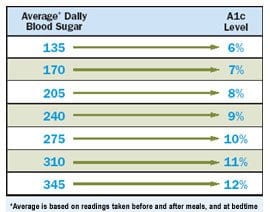 A large United States-backed study recently discovered that lowering blood glucose levels in older individuals with diabetes was helpful in preserving brain volume in the patients but did not help in mitigating the effects of memory loss. The findings were published in the journal “Lancet Neurology.”
A large United States-backed study recently discovered that lowering blood glucose levels in older individuals with diabetes was helpful in preserving brain volume in the patients but did not help in mitigating the effects of memory loss. The findings were published in the journal “Lancet Neurology.”
The ACCORD study has previously shown that aggressive treatment of diabetics in regulating blood sugar levels to be as close to normal as possible does not produce significant positive benefits. The study was stopped in 2008 when it was discovered that patients who received intensive blood glucose-regulating treatment were at a higher risk of death than were patients who received standard treatment.
Researchers recently shifted focus to study the effects on memory of aggressive diabetes management in 3,000 patients age 55 to 80 who had high blood glucose levels and were at high risk of heart disease.
Individuals over 70 with Type 2 diabetes are twice as likely to develop memory problems as those without the disease. Physicians hypothesized that increased blood sugar levels were the culprit, and reducing blood glucose to a normal level would mitigate the chances of memory loss in older Type 2 diabetics.
“We know that people with type 2 diabetes have a much higher risk of dementia and memory loss than people without diabetes,” said Dr. Jeff Williamson, of the Wake Forest Baptist Medical Center in North Carolina. Williamson also participated in the study on diabetes and memory loss. “What we didn’t know was, if you intensively control blood sugar levels in people who have had a history of trouble controlling them, does the added cost and effort to control blood sugar result in a slowed rate of memory loss?”
The group of 3,000 was split into two groups according to the type of treatment they received. One group received typical treatment for diabetics, intended to lower hemoglobin A1c levels from over 7.5% to between 7% and 7.9%. The other group received a more aggressive treatment which sought to reduce hemoglobin A1c levels to that of non-diabetics, about 6%.
Forty months after the beginning of the study, the patients who received aggressive treatment showed significantly more brain volume; however, they did not demonstrate any improvements in memory.
According to Dr. Williamson, it’s unclear whether the increase in brain volume will provide some benefits to the patients later on in their lives. However, since the intensive treatment is associated with increased risk of death and heart disease, the more aggressive treatment is not recommended.
Dr. Williamson says that instead of focusing on reducing hemoglobin A1c levels drastically, diabetics should focus on diet, exercise, and meeting their typical blood sugar requirements rather than spending extra time and energy to reach the hemoglobin A1c levels of non-diabetics.
He also commented that the results demonstrate that individuals who are at risk for diabetes should take steps to improve their health, since medication will not always provide the answer. “For those folks who are gaining weight and living a sedentary lifestyle, this is a warning that medicine is not going to rescue you,” he said.
The majority of the 366 million people worldwide with diabetes have Type 2 diabetes, sometimes called adult onset diabetes. Caused by poor diet, lack of exercise, and linked to obesity, diabetes requires individuals to manage blood sugar levels and can lead to a variety of complications, from loss of vision to nerve damage and heart disease.